
Whether you're accommodating someone with food allergies, preparing a vegan recipe or simply out of eggs, your options for an eggless cookie are many. Some substitutes work just like an egg, while others lend a distinct flavor or texture. Experiment with egg substitutes until you're happy with the oven-baked results.
Flax Seed
Of the many egg substitutes available for baking, flax seed meal is among the most unlikely -- but among the most useful. Mix about 1 teaspoon of flax seed meal with 3 teaspoons of warm water per egg you wish to substitute. This method lends a slightly nutty flavor to the cookie, making it ideal for hearty recipes, such as oatmeal or chocolate chip. Buy heart-healthy flax seed meal that is already ground, or use a coffee or spice grinder to ground whole seeds yourself. Mix the meal with water until it takes on the consistency of egg whites.
Oils
Various oil mixtures replicate eggs in cookie batter, including the tried-and-true combo of 1 1/2 teaspoons of corn or vegetable oil, 1 1/2 teaspoons of warm water and 1 teaspoon of baking powder per egg replaced. Whisk the oil mixture until it takes on a foamy consistency. You may also use about 1/4 cup of vegetable oil as a substitute for recipes that call for just one egg. Avoid vegetable oil for recipes that call for more eggs, however, as you run the risk of an overly greasy cookie.
Fruits
About 1/4 cup of unsweetened applesauce or mashed banana is a healthy, low-fat egg substitute for cookies and other baked goods. Fruits make for a smooth texture, but they also lend a mild fruit flavor to the cookie. You may use sweetened applesauce, but remember to reduce the amount of sugar in the recipe to offset the sweetness.
Other
Store-bought egg replacers serve as all-purpose egg substitutes. Some vegetarian-friendly replacers contain soy and wheat, while gluten-, wheat- and dairy-free vegan replacers feature ingredients such as potato starch and tapioca flour. These substitutes aim to closely mimic the taste and texture of eggs in baked goods recipes, rather than add additional flavor. As each product varies, consult the manufacturer's label for portioning instructions and information about allergies and content. A 2-teaspoon mix of half unflavored gelatin and half warm water also serves as an egg substitute that won't greatly alter the taste of your cookie recipe. However, gelatin is not vegan-friendly, as it typically comes from animal collagen.
Related Articles

Is There a Substitute for Eggs in ...

What Is the Difference Between Scones & ...

How to Make Almond Buttercream Frosting
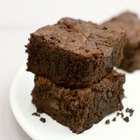
How to Lower the Fat in a Brownie Mix

What Can You Use in Place of Egg Yolk ...

What Can Be Used Instead of Eggs for ...

Can You Substitute Vegetable Shortening ...

How to Make a Grapefruit Facial Mask
How to Use Unsweetened Applesauce in ...
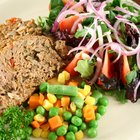
How to Plan a Meatloaf Menu

Main Ingredients of English Muffins

How to Serve Ciabatta Bread
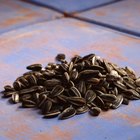
How to Remove Salt From Sunflower Seeds

How to Substitute Light Corn Syrup in a ...

What Can You Substitute for Vegetable ...

How to Make a White Decorator Icing

Can I Make Boxed Devil's Food Cake Mix ...

Can You Substitute Shortening for ...
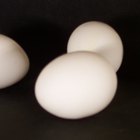
How to Bake a Cake Without Egg Whites
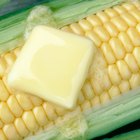
Common Food Emulsifiers
References
- Eating with Food Allergies: Egg Substitutes
- SheKnows: In a Pickle: What to Do if You're Out of Eggs
- The New York Times: Diner's Journal: Replacing Eggs with...Flax?
- The Kitchn: Food Science: Egg Substitutions in Cookies and Brownies
- Ener-G: Ener-G Gluten-Free Egg Replacer
- Bob's Red Mill: Vegetarian Egg Replacer
- The Kitchn: Gelling without Gelatin: Vegetarian and Vegan Substitutes
Resources
Writer Bio
With a diverse professional background and a decade of experience as a freelance writer, Dan has contributed lifestyle content -- from fashion to travel to fitness and more -- to publishers including Chron, Fortune, Sony, GlobalPost, ModernMom, Moviefone, Salon.com, Techwalla and dozens of others.
Photo Credits
Jupiterimages/Pixland/Getty Images